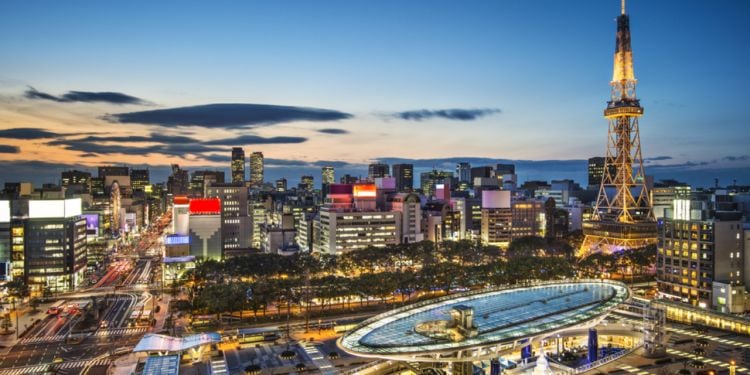
The Nagoya region is one of Japan's three economic pillars. Home to Toyota, it is also a leader in the aviation sector and machine tool industry. The area has been looking beyond its borders for further expansion. The "Greater Nagoya Initiative" organization underscores its desire to accelerate exchanges with international companies and thus attract global talent. This is a significant boon for foreigners who dream of working in Nagoya.
Mapping Nagoya
Geography
Nagoya is the capital of the Aichi Prefecture and is centrally located on Honshu, Japan's main island. A former stronghold of the powerful Tokugawa shogunate, Nagoya takes advantage of its unique geographical position at the center of Japan to connect and trade with the world. Today, a former symbol of Tokugawa domination, the Nagoya castle bears witness to a city that never stopped winning popularity.
Population
While other prefectures are experiencing population decline over the years, Aichi is experiencing population growth. The figure has been steadily increasing since the mid-1990s. The prefecture has grown from 6.8 million inhabitants in 1995 to 7,481,332 people as of December 1, 2023.
Located in northwestern Aichi, Nagoya has a population of 2,327,700, most of the prefecture's population. Toyoda and Okazaki, the second and third largest cities, are far behind.
In the center, Toyoda is home to 415,833 inhabitants, and Okazaki, a bit further south of Toyoda, is home to 382,132 people.
Other big cities, like Ichinomiya, Toyohashi, Kasugai, Toyokawa, and Anjo, have between 374,313 and 186,392 inhabitants.
As of June 2023, there were 297,248 foreign residents in Aichi Prefecture, an increase of 10,644 compared to the number of foreign residents as of December 2022.
Regarding the number of foreign residents by nationality, Brazil accounted for 61,006, or 20.5% of the total, followed by Vietnam with 53,041 (17.8%), China 44,739 (15.1%), Philippines 43,228 (14.5%), Korea/Korea 28,553 (9.6%), Nepal 13,908 (4.7%). Nepal followed with 13,908 (4.7%).
The number of foreign residents in Nagoya City as of 2022 was 86,120 (3.70% of the city's population), an increase of 7,050 from the end of 2021.
By nationality and region, China accounted for the most significant number at 22,867 (26.6% of the total), followed by South Korea/Korea at 14,984 (17.4%), Vietnam at 10,543 (12.2%), the Philippines at 9,737 (11.3%), and Nepal at 8,261 (9.6%) (source: Aichi Prefecture website).
Nagoya's economy
Nagoya's geographical position at the heart of the main island puts it at the crossroads of air traffic and allows it to be globally connected. The city has its own airport, only 30 minutes from Chubu International Airport. Nagoya is also renowned for its maritime and land traffic.
Japan's third-largest economic city is Nagoya, trailing behind Tokyo and Osaka. It boasts a thriving economy with a wide range of industries. It is known for its excellence in automotive, aerospace, robotics, machine tool manufacturing, and ceramics.
The city has a diverse and international business landscape, with over 121,000 businesses in the Greater Nagoya area, including nearly 600 foreign-affiliated companies.
Moreover, Nagoya benefits from a robust research and development environment, with prestigious institutions like Nagoya University and Nagoya Institute of Technology contributing to its innovation and progress (source: Business in Nagoya).
Nagoya is a great place to develop one's business. Many companies have established themselves here. They include local businesses and foreign ones from the United States, Germany, the United Kingdom, Switzerland, and France.
Nagoya's labor market
Regarding job openings, the number of new job offers decreased by 5.0% compared to last year. The industries with the highest increase in job openings were construction (−2.9%), manufacturing (−14.6%), information and communication (+17.2%), transportation (−5.9%), wholesale and retail (+14.1%), finance and insurance (+62.4%), real estate and goods rental (−13.0%), academic research, professional and technical services (−0.0%), and information and communication (+17.2%).
On the other hand, the sectors with the most significant decrease in job openings were accommodation and food services (−31.2%), living-related services and entertainment (−8.1%), medical care and welfare (−4.5%), and services (−1.7%).
In the manufacturing industry, there were declines in food product manufacturing (−12.3%), textile manufacturing (−38.3%), wood and wood product manufacturing (−12.5%), printing and related industries (−17.2%), plastic product manufacturing (−34.6%), ceramic and stone product manufacturing (−14.2%), steel manufacturing (−34.8%), metal product manufacturing (−4.4%), and general machinery and equipment manufacturing (−4.7%).
There were also decreases in semi-professional machinery and equipment (−24.2%), production machinery and equipment (−19.4%), electrical machinery and equipment (−31.6%), information and communication machinery and equipment (−44.4%), and transportation machinery and equipment (−0.9%).
Job openings decreased by 3.5% compared to last year (source: https://jsite.mhlw.go.jp/aichi-roudoukyoku/content/contents/001676438.pdf).
What are the leading job sectors in Nagoya?
People often consider moving to Tokyo, overlooking that Nagoya is also an economic giant. This city attracts local and foreign companies, making it an attractive stage for international talent.
Port activity
Thanks to the port of Nagoya, the region's foreign trade is doing well, with almost 150 billion yen in 2020. The port mainly exports machinery, transportation, and electrical equipment. It imports natural gas, petroleum, other derivatives, and electrical equipment.
Industry
Nagoya's industrial zone is home to heavy industries: refineries, factories, and manufacturers of aircraft parts, ceramic products, refrigeration, and electrical controls, which are part of an innovative industry that invests in robotics and engineering.
Research
To face new demographic, environmental, and economic challenges, Nagoya brings together academics, local officials, and entrepreneurs to create the industry and technology of the future. Research and Development Center, National Institute of Advanced Industrial Science and Technology Chubu Center, Advanced Technology Cooperative Research Center, Science Exchange Plaza, and Creation Core Nagoya are all research structures cooperating to build the Nagoya of tomorrow.
Other sectors that are recruiting
Tourism and education are also among the sectors that are recruiting. Many foreigners still see teaching as an easy entry point to get a work visa in Japan. This is not true! It is, in fact, crucial to identify one's needs and objectives to avoid making mistakes.
Teaching
In many countries, teaching jobs, at home or in conversation cafés, are often part-time jobs open to foreigners on a student visa or a Working Holiday Visa (WHV), but this is not the case in Japan. Here, the employer seeks competent and motivated people. More and more local language companies require a degree from a university.
These requirements go up a notch for foreigners who wish to teach in Japanese or foreign schools. Not surprisingly, you must possess a diploma in your field of activity (like French as a foreign language, applied languages, or English). It is better to speak Japanese and have a proven professional experience in teaching.
Tourism
The exact requirements for teaching also apply to tourism jobs. It is essential to speak Japanese to work in this sector and to find offers that fit your profile. Otherwise, opportunities in tourism in Nagoya are varied, and the city has a lot to offer to experienced travel advisors, tourism project managers, data analysts, hotel receptionists, tour guides, local tourism development officers, cultural engineering consultants, etc. Of course, speaking English and even several other languages is also necessary.
Startup ecosystem in Nagoya
Nagoya's global rank in the Global Startup Ecosystem Index of 2023 dropped 41 spots. However, its national ranking in Japan has remained steady at five since 2022.
In 2024, Nagoya will open Station AI, Japan's most prominent startup facility, backed by SoftBank. This six-story building will house startups and provide mentorship and global networking opportunities. It will be a critical attraction for Nagoya, as the city aims to become a startup hub and attract young companies, capital, and international talent (source: https://www.japantimes.co.jp/news/2023/01/16/business/nagoya-startup-hub-position/).
Nagoya's major companies
It is impossible to talk about Nagoya without mentioning Toyota. Toyota is the other driving force of the prefecture near the big city of Aichi. The name of the city is that of the car company. The giant Toyota has marked its territory with hospitals, schools, sports facilities, childcare organizations, and even its museum. The city has 7 Toyota factories and lives to the rhythm of the car company. It is a great success that draws local and foreign workers alike.
Nagoya is also home to other major industrial, electronic, high-tech, and service groups like Lexus, Mitsubishi, Magna, PPG, Bodycote, Pratt & Whitney, and Boeing.
The Greater Nagoya Initiative (GNI)
Greater Nagoya is a hub that extends 100 km outside of Nagoya. Created to promote trade with foreign companies, it advocates accelerating exchanges between businesses and people. In this context, the France–Japan Chamber of Commerce and Industry (CCI France–Japan) opened an office in Nagoya in 2020. Major groups such as CemeCon (coating technologies), CMC Materials (semiconductors and other advanced materials), UL Japan (security leader), and AutoTech Japan (automotive equipment production) support GNI.
How to look for a job in Nagoya
Websites
Check out websites of companies specializing in your activity field and general online job boards. Do your research in Japanese. This will give you access to a more extensive job market. Also, take advantage of professional and informal social networks. Participate in webinars and videoconferences related to your field. Hosted by professionals, they will allow you to build and feed your network and even apply for jobs.
Forums, career events, etc.
Chambers of Commerce and Industry, job search organizations, and professional associations are great places to discover job-related events. Sometimes, you must join the organization before benefiting from its support. The job market in Japan is tough to access, even for qualified foreigners, but the investment may be worth it.
Required diplomas and qualifications
Ideally, you should possess a high-level diploma when planning to work and live in Japan – finding a job there with a degree is already very challenging. So, without one, it becomes even more difficult. However, nothing is impossible. If your degree is recognized internationally, capitalize on it; if you have experience in a large international group, put it forward.
In any case, make sure you have a good level of Japanese. If necessary, take language classes before you start your job. Many foreigners are as skilled as you are and speak the language perfectly. So, put your strengths forward while working on your weaknesses.
Tips for working and living in Nagoya
Practice writing resumes and cover letters by hand. The best way to apply for a job is directly on the Internet. But in Japan, the traditional CV is still an institution, although this is changing, especially in foreign and foreign-focused companies. The Japanese CV is a form that includes a mandatory photo, academic background, diplomas, qualifications, and motivation. Each box has its topic.
Ideally, it is recommended that you come to Japan a few weeks before starting your job. This advice is especially true if it is your first move abroad. Arriving a little before you start work will allow you to settle in smoothly and complete your administrative procedures. You will also have time to discover Nagoya and the Aichi prefecture.
In case of culture shock, do not hesitate to seek help. Talk to your family and friends, and contact acquaintances locally. Consult a professional if your condition does not improve. Embassies have lists of doctors who speak English and/or your language.
Useful links:
Official website of the city of Nagoya Greater Nagoya
We do our best to provide accurate and up to date information. However, if you have noticed any inaccuracies in this article, please let us know in the comments section below.
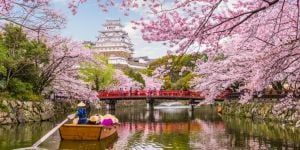

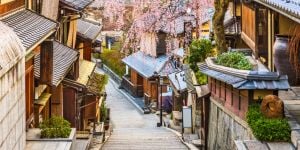
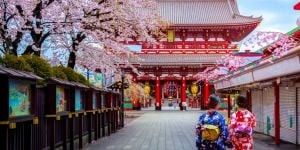


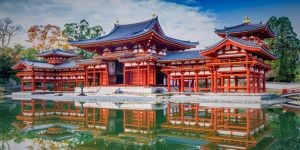
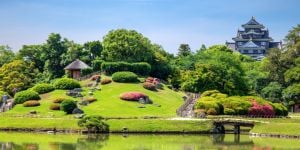




Comments
1